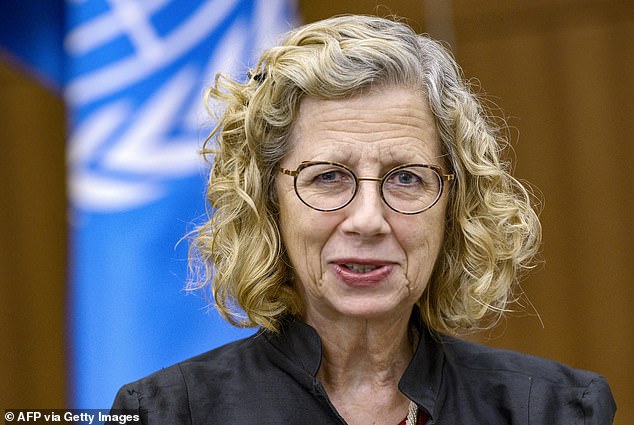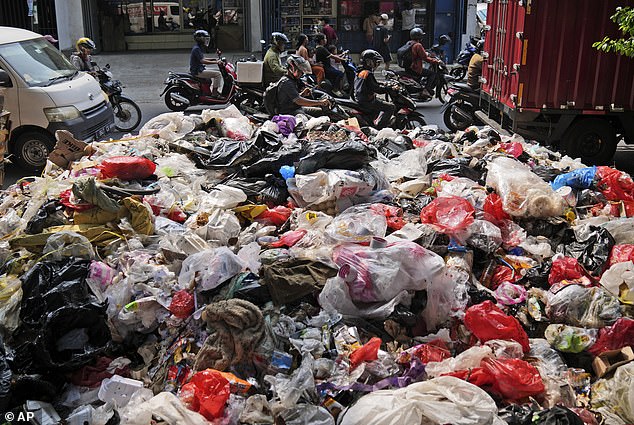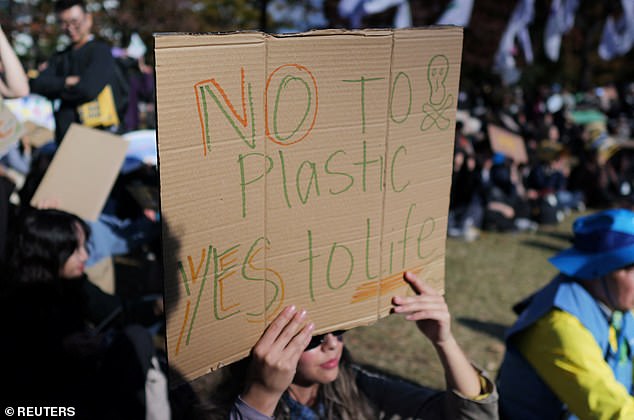UN talks to secure the world’s first treaty to combat plastic pollution collapse
Talks on a landmark pact against plastic pollution collapsed yesterday.
Nearly 200 countries spent a week starting November 25 in negotiations in Busan, South Korea, aiming to agree on the first global treaty to tackle plastic pollution.
But in the early hours of yesterday morning, negotiators conceded defeat, saying they had failed to bridge serious divisions over the treaty’s aims.
The world produces more than 400 million tons of new plastic every year. Without policy changes, plastic production could increase by around 70 percent by 2040 – with huge amounts ultimately polluting the Earth and harming nature.
Dozens of “high ambition” countries sought an agreement that would set targets to limit new plastic production and phase out certain chemicals and single-use plastic products at the summit, called Intergovernmental Negotiating Committee 5 (INC-5).
That goal was repeatedly rejected by major oil producers, including Saudi Arabia, Russia, Iran and Kuwait, who insisted the text should not contain any reference to production. Oil is one of the most important raw materials for making plastic.
Inger Andersen, head of the UN Environment Programme, said the talks would allow progress in future negotiations.
“It’s clearly not a failure,” Ms Andersen said, adding: “What we do have is very, very good progress.”
A huge pile of garbage, including plastic, pictured in Rizal province, Philippines, on November 28

Inger Andersen, head of the UN Environment Programme, said the talks would allow progress in future negotiations

Motorists pass trash, mostly plastic, piled up on the side of a road in Jakarta, Indonesia

A woman holds up a sign during a meeting to demand stronger global commitments to combat plastic waste during the upcoming fifth session of the Intergovernmental Negotiating Committee in Busan, South Korea last month
Ms Andersen said the talks produced a treaty text that, although not agreed upon by all countries, could still form the basis for future talks.
But critics say the text could be open to renegotiation and changes.
In the final stages of the summit, dozens of countries supported new production targets and the phasing out of chemicals thought or known to be harmful.
But Saudi Arabia’s Abdulrahman Al Gwaiz indicated that production cuts remain a red line for many countries.
“If you tackle plastic pollution, there should be no problem with plastic production, because the problem is the pollution, not the plastics themselves,” he said.
No date or location has yet been set for the resumption of talks, although Saudi Arabia and others sought to resume no sooner than mid-2025.
Ms Andersen said she remains “absolutely determined” to secure a deal next year.
“Earlier is much better than later because we have a huge problem.” Falco Martin, Marine Plastics expert from Fauna & Flora said of the collapse: ‘What could have been a moment of real change for the plastic plague was missed today.’
